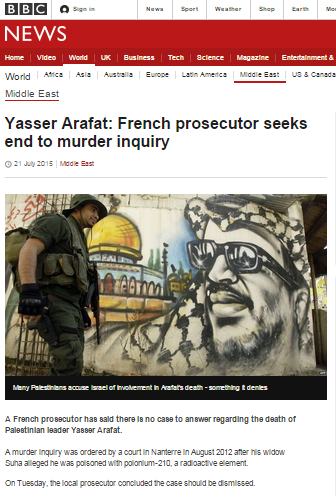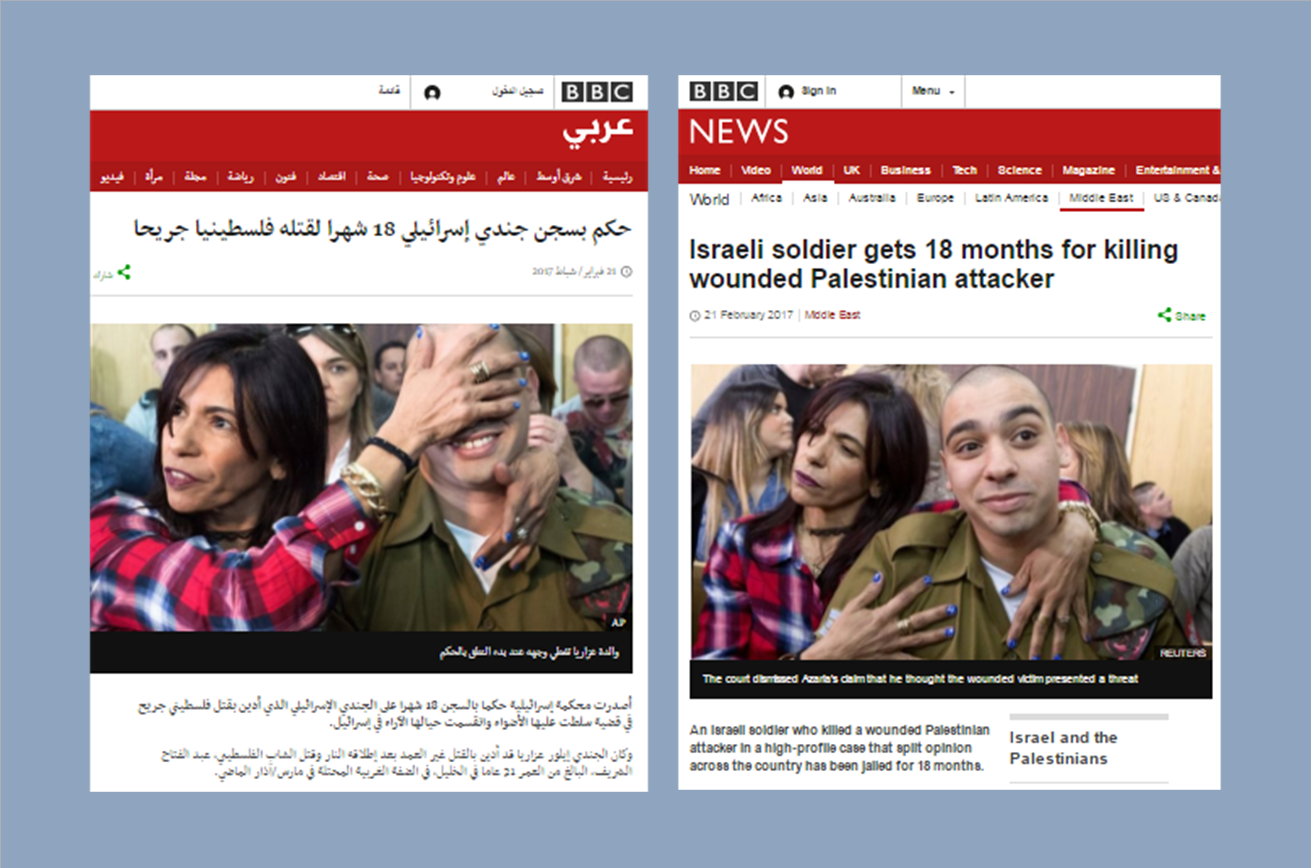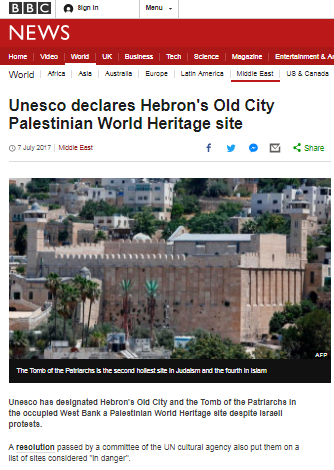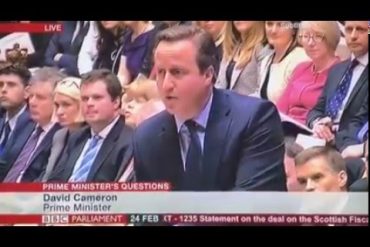On July 21st the BBC News website’s Middle East page included a report titled “Yasser Arafat: French prosecutor seeks end to murder inquiry“. The article’s opening lines reasonably sum up the story as follows:
“A French prosecutor has said there is no case to answer regarding the death of Palestinian leader Yasser Arafat.
A murder inquiry was ordered by a court in Nanterre in August 2012 after his widow Suha alleged he was poisoned with polonium-210, a radioactive element.
On Tuesday, the local prosecutor concluded the case should be dismissed.”
Later on readers are told that:
“His [Arafat’s] widow objected to a post-mortem examination at the time, but agreed to allow French, Russian and Swiss experts to take samples from his remains after traces of polonium-210 were found on his personal effects in July 2012 as part of an investigation by the Qatar-based al-Jazeera network.[…]
…the French experts had concluded that the polonium-210 and lead-210 isotopes found in Arafat’s grave and in the samples of his remains were of “an environmental nature”. […]
The French findings echoed those of the Russian Federal Medical and Biological Agency, which said in December 2013 that Arafat “died not from the effects of radiation but of natural causes”.
However, Swiss scientists at the Vaudois University Hospital Centre in Lausanne said the previous month that the results of their investigation indicated “third-party involvement” in Arafat’s death and offered “moderate backing for the theory of poisoning”.”
Notably, the BBC News website refrained from reporting on the results of the French investigation at the time of their official publication although it did cover an earlier leak in two reports. Its coverage of the Russian results amounted to one article. However, coverage of the Swiss results saw BBC News website users bombarded with no fewer than thirteen reports on the topic in the space of 48 hours.
A recurrent feature appearing in most of those reports, as well as in additional BBC content, was the amplification of conspiracy theories surrounding the then 75 year-old Arafat’s death. Remarkably, even in this latest story about a French prosecutor having concluded that there is no point in pursuing the inquiry any further, the BBC promotes that same conspiracy theory no fewer than three times.
The main photograph chosen to illustrate the article is captioned:
“Many Palestinians accuse Israel of involvement in Arafat’s death – something it denies”.
In paragraph five readers are told that:
“Many Palestinians nonetheless continue to accuse Israel of involvement in his death – something it has strenuously denied.”
And just in case by the time they had read the whole article that conspiracy theory had perhaps slipped their mind, the report’s final lines tell readers that:
“Despite the Russian and French findings, a Palestinian investigative committee declared that it was certain that Arafat was “killed and that Israel killed him”.”
Just a day before this article was published the British prime minister gave a landmark speech on extremism in which he repeatedly noted the connection between conspiracy theories and radicalization and extremism.
There are few, if any, publicly funded bodies as influential and far-reaching as the BBC. Its content reaches nearly every British household and hundreds of millions more around the world. The information it produces is used by policy-shapers, decision-makers, academics and educators and passed on to the next generation because it is considered to come from a respectable, reliable source.
So when the BBC repeatedly and knowingly amplifies baseless conspiracy theories, they are legitimized and mainstreamed into public consciousness and – to borrow a phrase from Mr Cameron – the BBC too becomes part of the problem which British society is so urgently trying to address.
Related Articles:
BBC goes into Arafat overdose mode – again
BBC Arafat binge continues to promote conspiracy theories
Comparing BBC coverage of Arafat ‘poisoned’ vs ‘not poisoned’ stories
Four times less BBC Online coverage of Arafat ‘not poisoned’ stories
Why we need to talk about the BBC’s promotion of Middle East conspiracy theories




